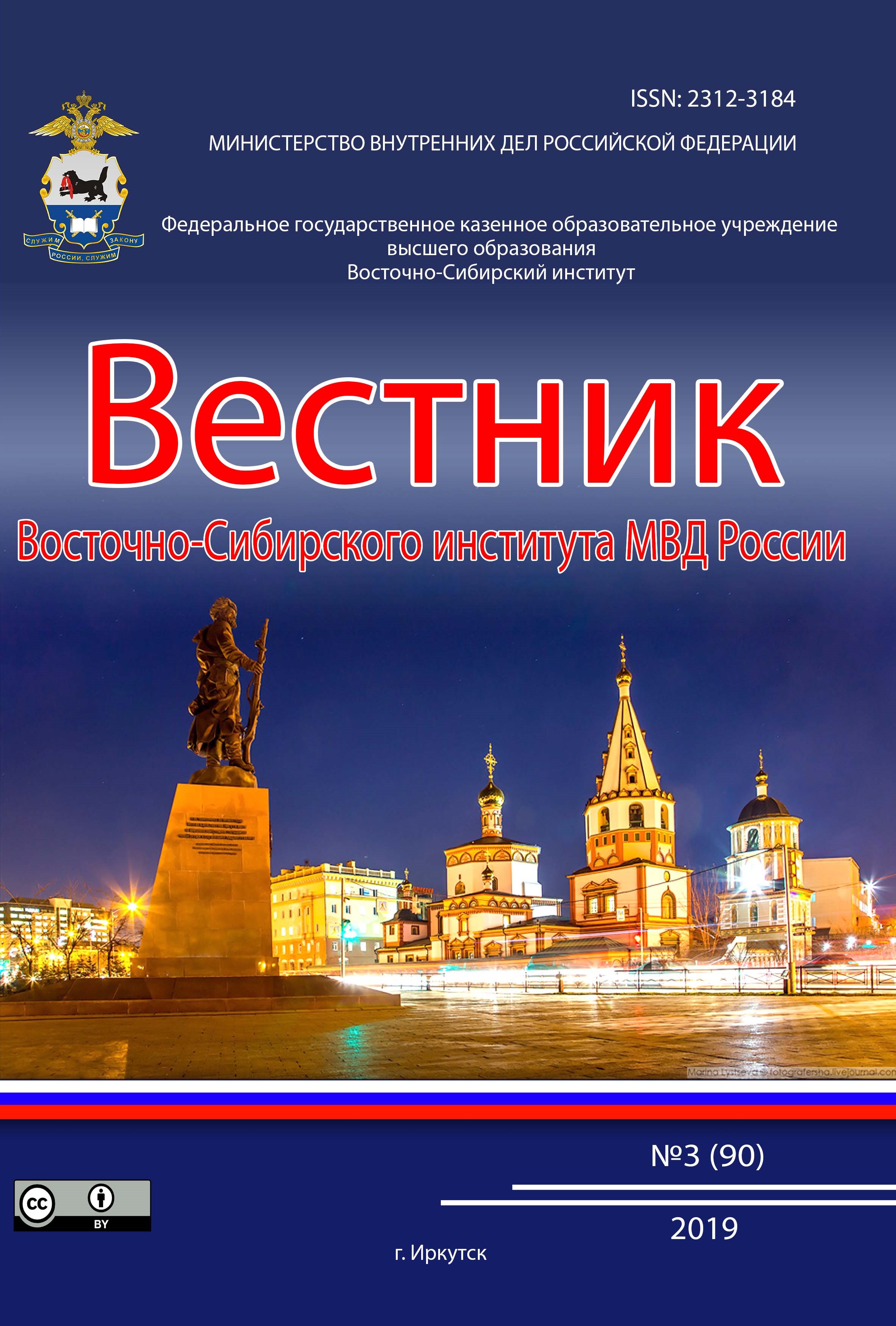Introduction. Conducting a comprehensive study of foreign features of interaction between police officers and citizens is a very relevant requirement of our time. In addition, at present, the analysis of this work of foreign police units has great scientific and practical significance. The study of foreign positive experience, as well as the analysis of negative factors of this activity will allow domestic scientists and practitioners to develop a more effective law enforcement model for ensuring public order with the participation of citizens. Materials and methods. As empirical data, the author used: foreign legislative and law enforcement practice; scientific research carried out both in our country and abroad on the topic of this work; as well as other information materials revealing the features of the joint fight against crime by the police and the population abroad. Within the framework of the research work, all empirically obtained data on the identified issues were summarized, analyzed and served as the basis for the scientific conclusions made. The methods of this study were a systems approach, logical analysis, systematization, systemic-structural method and processing of information data. The use of such a strategy and this scientific approach allowed the author to successfully cope with the task. The results of the study. Despite the lack of similarity in the state, political and legal systems of the countries of the world, most of them strive to maintain stable law and order in their countries and make every effort to minimize all kinds of offenses and counteract criminal manifestations. And as a rule, the main tasks of maintaining law and order are included in the functional responsibilities of police units. It is also important to note that at the end of the last century, most countries of the world began to adhere to the approach of internal collective security, which is achieved on the basis of close cooperation between police structures and the public. In addition, instead of repressive mechanisms, law enforcement agencies began to apply a policy of partnership with the public, which in turn allowed to significantly raise the prestige of police structures and concentrate on activating measures to counteract criminal manifestations. It is important to note that, first of all, such a law enforcement approach began to be introduced in a number of world powers in accordance with the needs of civil society, and later began to spread widely in other states. Conclusions and conclusions. Taking into account the comparative analysis, as well as a comprehensive study of the experience of the analyzed activity abroad, the author convincingly proved that public participation in ensuring law and order is becoming the most important way to improve the effectiveness of this work in most world powers. The conducted analysis of the features of cooperation between the public and police forces abroad indicates a well-established, organized and structured work in this area in various foreign countries. Having annotated foreign positive activities in the field of ensuring law and order and combating crime, it would be logical in the future to study all the positive aspects of this work by domestic law enforcement agencies with their possible implementation in practice. In particular, it would be correct to take more effective measures for the interaction of law enforcement agencies with the public in joint activities.
foreign law enforcement practice, increasing public safety, new positive experience, reducing crime, law enforcement agencies, modern scientific developments, ensuring law and order, interaction with society, assistance to the police, crime prevention
1. Gordeev A. Yu. K voprosu o polozhitelnom opite preduprezhdeniya prestuplenii v zarubezhnikh stranakh [On the issue of positive experience in preventing crimes in foreign countries]. Voprosi rossiiskogo i mezhdunarodnogo prava – Issues of Russian and International Law. 2017, vol. 7, no. 11A, pp. 115-121.
2. Golovko A. Diktant dlya politseiskikh [Dictation for police officers]. Politsiya Rossii –Police of Russia. 2012, no. 12, pp. 22-23.
3. Kashirina O.N. Kontseptsiya rannei profilaktiki prestupnosti v Italyanskoi Respublike: soderzhanie, subekti [The concept of early crime prevention in the Italian Republic: content, subjects]. Innovatsionnaya ekonomika i pravo – Innovative Economics and Law. 2016, no. 1 (2), pp. 57-66.
4. Shpak A. V. Aktualnie problemi vzaimodeistviya politsii i grazhdanskogo obshchestva v sfere realizatsii pravookhranitelnoi funktsii gosudarstva: otechestvennii i zarubezhnii opit [Actual problems of interaction between the police and civil society in the sphere of implementation of the law enforcement function of the state: domestic and foreign experience]. Zhurnal yuridicheskikh issledovanii – Journal of Legal Research. 2022, vol. 7, no. 2, pp. 17-25.
5. Kiselev A. K. Obshchestvennost i politsiya v Yevrope: opit poslednego desyatiletiya [The public and the police in Europe: the experience of the last decade]. Administrativnoe pravo i protsess – Administrative law and process. 2012, no. 11, pp. 54-58.
6. Zimin Ye. A. Kontseptsiya "community policing": obshchie predposilki vozniknoveniya, doktrinalnaya i prakticheskaya neopredelennost [The concept of "community policing": general prerequisites for its emergence, doctrinal and practical uncertainty]. Problemi prava – Problems of Law. 2014, no. 1 (44), pp. 88-91.
7. Petrushina Yu. N. Pravovoe polozhenie instituta uchastkovogo upolnomochennogo politsii v zarubezhnikh stranakh [Legal status of the institute of district police officer in foreign countries]. Otechestvennaya yurisprudentsiya – Domestic jurisprudence. 2019, no. 7(39), pp. 15-18.
8. Korablev S. Ye. Sotsialno-orientirovannaya strategiya deyatelnosti politsii kak faktor yee professionalnoi effektivnosti [Socially-oriented strategy of police activity as a factor of its professional effectiveness]. Vestnik oronezhskogo instituta MVD Rossii – Vestnik of the Voronezh Institute of the Ministry of Internal Affairs of Russia. 2013, no. 1, pp. 148-155.
9. Zikov A P. Gotovnost sotrudnikov politsii k uregulirovaniyu krizisnikh situatsii kak faktor ukrepleniya sotsialnogo doveriya grazhdan (na primere otechestvennogo i zarubezhnogo opita) [Readiness of police officers to resolve crisis situations as a factor in strengthening social trust of citizens (based on domestic and foreign experience)]. Nauchnii daidzhest Vostochno-Sibirskogo instituta MVD Rossii – Scientific digest of the East Siberian Institute of the Ministry of Internal Affairs of Russia. 2022, no. 4 (18), pp. 67-76.
10. Maiorov V. I., Sevryugin V. Ye. Protivodeistvie prestupnosti na osnove sovremennikh kontseptsii vzaimodeistviya politsii i obshchestva: opit zarubezhnikh stran i Rossii [Combating crime based on modern concepts of interaction between police and society: experience of foreign countries and Russia]. Vestnik Permskogo universiteta. Yuridicheskie nauki – Vestnik of Perm University. Legal sciences. 2017, no. 35, pp. 95-106.
11. Kobets P. N. Opit politsii Respubliki Polsha po vzaimodeistviyu s grazhdanskim obshchestvom v sfere okhrani pravoporyadka i podderzhaniya bezopasnosti [Experience of the Police of the Republic of Poland in Interacting with Civil Society in the Sphere of Law Enforcement and Maintaining Security]. Grazhdanskoe obshchestvo v Rossii i za rubezhom – Civil Society in Russia and Abroad. 2019, no. 1, pp. 32-35.
12. Kobets P. N. Polozhitelnii opit yaponskoi politsii v sfere okhrani pravoporyadka i profilaktiki prestupnosti [Positive experience of the Japanese police in the field of law enforcement and crime prevention]. Yurist-Pravoved – Jurist-Pravoved. 2021, no. 2 (97), pp. 199-204.
13. Kobets P. N. Istoricheskii analiz yaponskoi pravovoi sistemi [Historical analysis of the Japanese legal system]. Istoriya gosudarstva i prava – History of the state and law. 2021, no. 7, pp. 17-23.
14. Medveditskova L. V., Zubenko V. V. Opit effektivnogo vzaimodeistviya naseleniya i politsii v zarubezhnikh stranakh v protsesse profilaktiki i raskritiya prestuplenii [Experience of effective interaction between the population and the police in foreign countries in the process of preventing and solving crimes]. Mir nauki, kulturi, obrazovaniya – World of science, culture, education. 2016, no. 1 (56), pp. 199-201.
15. Kvashis V. Ye. Politsiya Yaponii: organizatsiya i effektivnost [Police of Japan: organization and efficiency]. Obshchestvo i parvo – Society and Law. 2018, no. 2 (64), pp. 9-14.
16. Kvashis V., Morozov N. Osnovnie tendentsii prestupnosti v Yaponii [Main trends of crime in Japan]. Ugolovnoe parvo – Criminal law. 2015, no. 2, pp. 131-134.
17. Ziyadullaev M. Z. Zarubezhnii opit sistemi okhrani obshchestvennogo poryadka i profilaktiki pravonarushenii v naselennikh [Foreign experience of the system of public order protection and crime prevention in populated areas]. Zhurnal zarubezhnogo zakonodatelstva i sravnitelnogo pravovedeniya – Journal of Foreign Legislation and Comparative Law. 2017, no. 2 (63), pp. 42-47.
18. Kobets P. N. Genezis organov gosudarstvennoi vlasti i upravleniya Kitaiskoi Narodnoi Respubliki [Genesis of state authorities and administration of the People's Republic of China]. Gosudarstvennaya vlast i mestnoe samoupravlenie – State power and local self-government. 2020, no. 7, pp. 51-55.
19. Reshetnikov I. V. Stanovlenie i razvitie politsii Kitaya [Formation and development of the police of China]. Yurist-Pravoved – Jurist-Pravoved. 2011, no. 2 (45), pp. 38-43.
20. Vnukov V. I., Kairgaliev, D. V. Organizatsiya i upravlenie sluzhebnoi deyatelnostyu politsii Kitaya [Organization and management of official activities of the Chinese police]. Yevraziiskii yuridicheskii zhurnal – Eurasian Law Journal. 2015, no. 11 (90), pp. 362‒363.
21. Boktaeva D. V. Osobennosti raboti politsii Kitaya v sfere okhrani obshchestvennogo poryadka [Features of the work of the Chinese police in the field of public order protection].Ekonomika i sotsium – Economy and Society. 2019, no. 6 (61), pp. 1111-1113.












